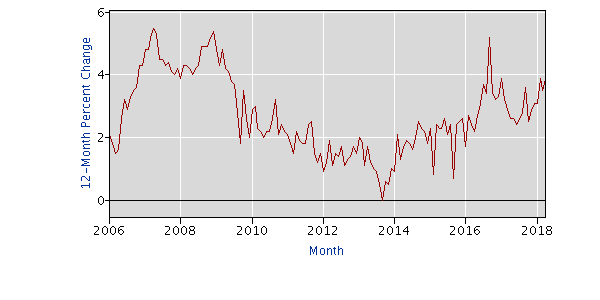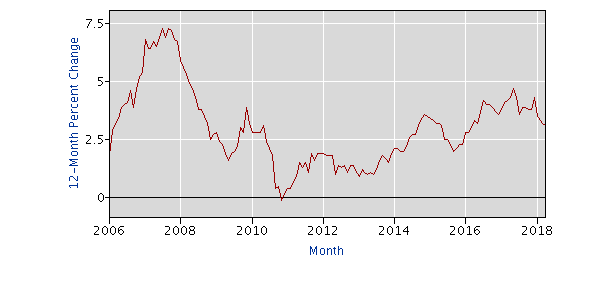May 23, 2018
A Washington Post article reporting the decision by the Trump administration to not press employers to use E-Verify to prevent undocumented workers from getting jobs repeatedly tells readers there is a labor shortage, especially in farming, restaurants, and construction. The data indicate otherwise.
If there were a shortage of workers in these industries, we should see rapidly rising wages. We don’t.
The Bureau of Labor Statistics establishment survey does not include farms, but we don’t see especially rapid wage growth in either construction or restaurants. Here is the picture for the average hourly wage of production and non-supervisory workers in construction.
Construction: Average Hourly Wage, Production and Non-Supervisory Workers

Source: Bureau of Labor Statistics.
Wage growth has been somewhat higher in the last two years than earlier in the recovery, but they still are rising less than 4.0 percent a year. And, the rate of increase is considerably less than at the peak of the last cycle.
There is even less of a case of a labor shortage in restaurants.
Restaurants: Average Hourly Wage, Production and Non-Supervisory Workers

Source: Bureau of Labor Statistics.
The pace of wage growth has slackened some in recent months. It is more than a percentage point lower than peaks hit in 2017 and well below the pre-recession pace.
It undoubtedly is true that some employers cannot afford to pay higher wages. In this case, they will go out of business. This is what happens in capitalism. It is the reason we don’t still have half of our workforce employed in agriculture. Workers had better-paying opportunities in cities that small farmers could not match.
Apparently, the Post thinks we should interfere with markets to protect low-wage employers and keep wages down. Those of us who like markets don’t share the political views expressed in this article.







Comments